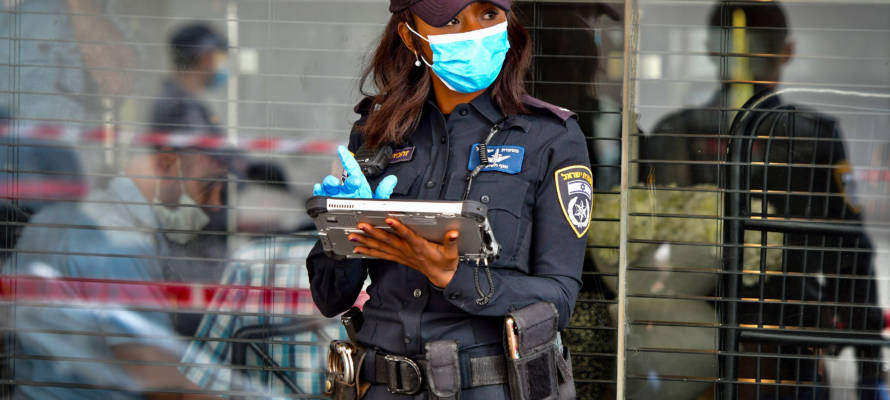“Israel’s numbers speak for themselves,” said one of Israel’s top emergency department doctors. “We expected a much greater crisis with much greater morbidity.”
By Ezra Stone, United with Israel
As the number of Israelis currently infected with COVID-19 continues to drop precipitously, the Israeli government is meeting this week to formulate the nation’s post-corona strategy, with schools, restaurants, and stores already reopening.
Unlike nations such as Italy and Iran, which were decimated by the coronavirus, losing thousands of citizens, Israel’s fatalities remained under 240 as of Monday, with the total number of infected individuals under 16,250.
Fewer than 300 corona patients remain in Israeli hospitals, while another 6,000 with less severe cases are recovering at home or in quarantine hotels, TPS reported. Nearly 10,000 Israelis have recovered from the virus.
Israel was among the first nations to institute curfews, enforce knockdowns, and seal its borders, preventing entry to non-citizens to stop the spread of the disease. Israel also repurposed surveillance programs normally used to track terrorists, using them instead to monitor coronavirus infections and those exposed to contagion, in addition to using the military to help distribute food and medication and protect vulnerable communities.
As coronavirus infections drop off in Israel, some have questioned whether these steps were responsible for Israel’s impressive outcome.
“Absolutely, I think the results speak for themselves,” commented Dr. Debra Gershov West, Director of Emergency Department at Ashdod’s Assuta Hospital.
West recently spoke with ILTV about her facility recently becoming Israel’s first hospital to shut down its COVID-19 department because all of its patients had recovered.
“We treated 75 patients, and everyone has recovered except an elderly patient with a lot of co-morbidities who died early in the process,” she added.
“All the other patients recovered ,including some seriously ill patients and some of the youngest patients in the country,” West told ILTV.
West cautioned that Israel must be “ready for a second wave,” which she called very likely.
“I think we are ready for it. The last months proved that we can handle a certain number of very sick patients, in Assuta and country-wide. As long as we keep the very vulnerable patients out of danger, then this is actually a disease we can deal with, like the flu. We just need to manage it,” said West.
She credits Israel’s “rapid and strict response” with Israel’s performance during the crisis.
“Israel’s numbers speak for themselves,” West explained. “We expected a much greater crisis with much greater morbidity.”
The number of ill “was something that the hospitals could absorb. No one died because we didn’t have ventilators.”
